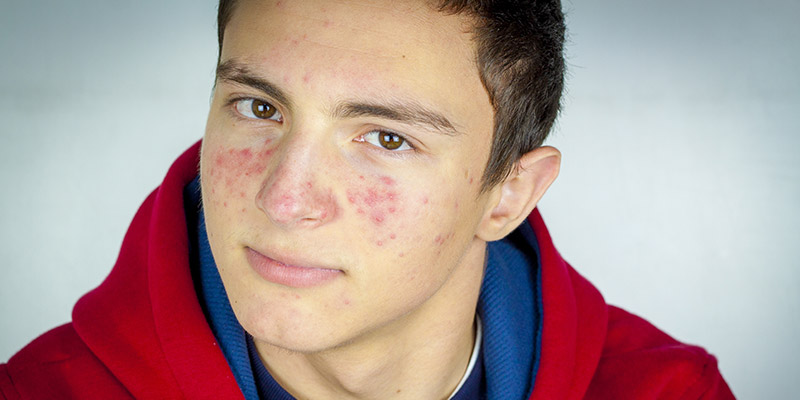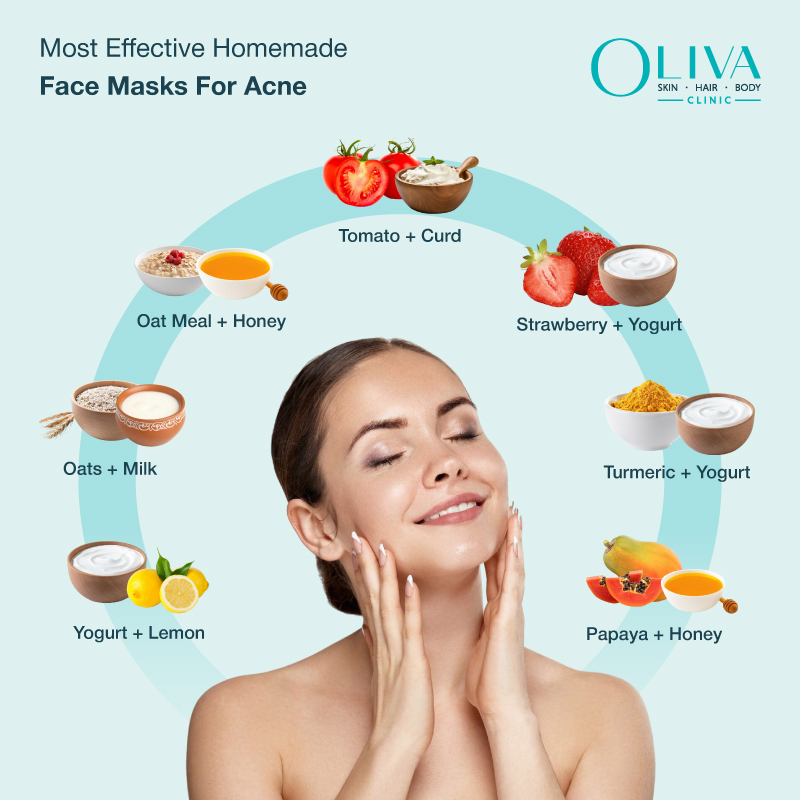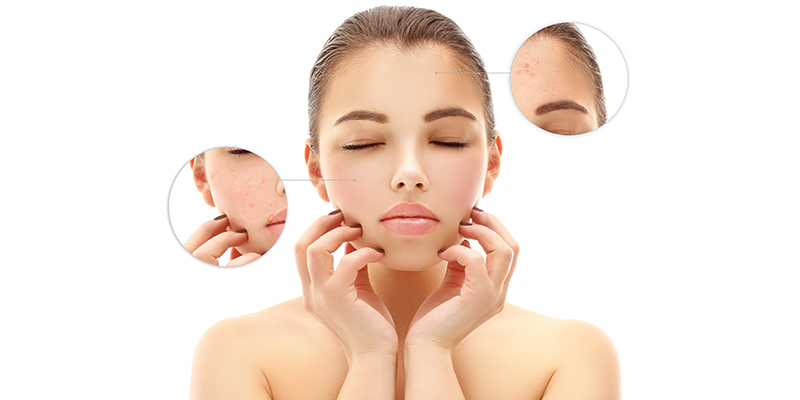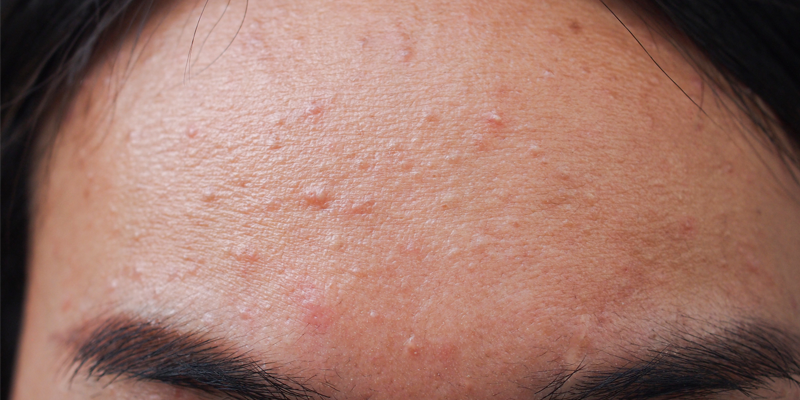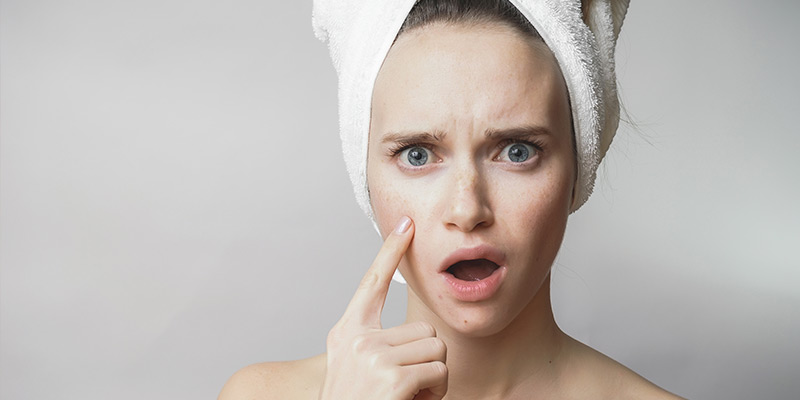What Are The Causes Of Whiteheads On Face – Treatments & Prevention
While small bumpy whiteheads can ruin a great complexion, they are easy to remove and with the right routine they can be prevented from forming.
In This Article
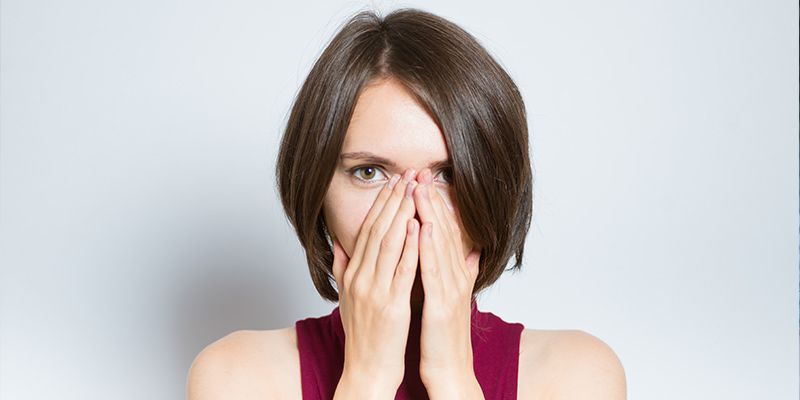
What Are Whiteheads?
Whiteheads are a milder form of acne that can appear round and bumpy with white tips on the skin’s surface. Whiteheads form when the pores become clogged with dead skin cells, dirt, and sebum. Eventually, a thin layer of skin covers the clogged pore with a white coloured surface, and this is known as a whitehead.
Where Do You Get Whiteheads?
Whiteheads can pop up on certain parts of the body, but they mainly form on the face. The most affected areas on the face include the nose, chin, cheek, forehead, neck, and lips. The chin and lips all come under the T-zone area. The T-zone is naturally the oiliest part of the face and is particularly vulnerable to pore clogging. This type of acne thrives in oily skin and feeds off the excess oil present in this area.
What’s The Difference Between Blackheads And Whiteheads?
Both whiteheads and blackheads are considered mild forms of acne known as comedones. The difference between the two is that if the top of the pore is open and exposed to air and dirt, it forms a blackhead and if the top is closed, it forms a whitehead.
Watch The Video On Blackhead Treatment Options
What Are The Main Causes Of Whiteheads On Face?
Let us look at the top causes behind whiteheads:
- Menopause, Menstruation, Puberty: These three stages of life can cause your body to suffer from hormonal imbalance, which can lead to extra sebum production causing whiteheads.
- Pregnancy: Acne is a common during pregnancy and in some cases it appears as whiteheads.
- Family History: Hereditary influences can play a role in causing whiteheads. If your parents have suffered from whiteheads, then it is most likely that you will too.
- Extreme Stress: Stress can fluctuate hormones and cause an acne (pimples, whiteheads, and blackheads) breakout.
- Anxiety: A constant state of anxiety and nervousness can trigger excess sebum production and lead to whiteheads.
- Certain Foods: Eating oily food, stress, side effects to medication etc. can contribute to whiteheads.
- Overly Dry Skin: While attempting to counteract acne, creams tend to dry the skin out in order to treat the breakout. This can cause an increase in the production of sebum to moisturize the skin (a natural process), which in turn can lead to whiteheads.
How To Treat Whiteheads?
These are the most effective treatments of whiteheads:
-
Medicines:
Any form of oral medication must be prescribed by a dermatologist. Oral antibiotics reduce bacterial infection, control sebum production, reduce inflammation, and can even balance hormones to heal and prevent whiteheads. It is very effective for whiteheads when used properly, but is not usually prescribed for mild acne of either type. Therefore, your dermatologist carefully evaluates your individual skin condition and sensitivity before prescribing any treatment for whiteheads.
-
Mandelic Acid:
It is a substance that comes in a peel or mask form. Mandelic acid is a type of Alpha Hydroxy Acid (AHA) that helps with controlling sebum production. It gently peels/exfoliates the upper layer of skin to reveal smoother and healthier skin. It is not easily available in drugstores or beauty stores. Such products must be used with care and its best to visit a dermatologist if you want to use Mandelic Acid peel.
-
Extraction:
Pimple extraction is one of the popular methods of reducing the appearance. In this procedure, a tool is used to remove contents within the whitehead. The extraction may be done at a skin clinic, by a beautician at a salon or at home. However, considering the risk of infection or scarring, it is always advised that extractions should be performed at a skin clinic under the supervision of an expert dermatologist.
Must Read: How To Get Rid Of Pimples Fast?
Whitehead Removal Products
Over the counter (OTC) solutions include the application of creams, gels, lotions, ointments, soaps and medicated pads. However, any OTC product can cause side effects, such as irritation, burning and redness of skin. You must consult a trained dermatologist before choosing any product for whitehead treatment. Let’s understand how these are available:
-
Benzoyl Peroxide:
Products that contain benzoyl peroxide work effectively on mild acne such as whiteheads. It kills bacteria present inside the pores and absorbs the sebum. Apply and leave on freshly washed skin for 10-15 minutes daily to see positive results. It can cause redness and itching in the first few attempts. Benzoyl peroxide is easily available as an OTC drug.
-
Retinoid Creams:
Creams with retinoid or retinol are very effective in treating whiteheads. This ingredient has exfoliating properties that can unclog pores and can reduce and even stop excess sebum production. Retinoids are available in all drugstores and many popular beauty products contain it as well. It can cause severe dryness, redness, and itching in some cases.
-
Salicylic Acid
Salicylic acid is considered one of the best ingredients to remove whiteheads. It exfoliates and sloughs off the upper layer of skin that contains dead skin cells to help de-clog pores and clean the debris inside them. Many beauty and OTC products contain salicylic acid. It comes in the form of creams, soaps, foam washes, etc. Keep in mind that it can cause excessive skin dryness and flaking, so use it carefully.
-
Exfoliants
Using an exfoliant with apricot beads, salicylic acid, and/or papain extract is very useful for removing dirt and oil from pores. Use exfoliators only up to twice a week as excessive use can aggravate acne or cause dryness.
Home Remedies For Whiteheads
Several beauty bloggers promote home remedies to be the easiest and most affordable solutions for treating whiteheads. People are encouraged to use natural remedies like facial steam, lemon juice, apple cider vinegar, aloe vera, homemade scrubs, tree tea oils etc. to control this condition. However, the medical community does not encourage or promote these applications as they lack scientific evidence. Furthermore, you have a risk of choosing the wrong ingredient which might harm or irritate your skin.
How To Prevent Whiteheads On Face?
Whiteheads develop when dead skin cells, sebum(oil) and dirt clog your pores. Following these prevention tips can help improving this condition.
-
Wash Your Face Twice Daily:
Generally, regions of skin like the face, nose and chin area are prone to getting clogged with dirt. Use a face wash with ingredients like salicylic acid and wash your face twice a day.
-
Choose The Right Skin Care Product:
Select a product based on your skin type and sensitivity. You must avoid products that may clog your pores and worsen this condition.
-
Use An Oil-free Moisturizer and Sunscreen:
It is better to use an oil-free moisturizer and sunscreen if your skin is susceptible to whiteheads. Using gel-based sunscreens and moisturizers will help prevent whiteheads without compromising on your skin care routine.
-
Wash Your Hair Frequently:
Even the scalp produces sebum, and if you have oily skin, you will probably have oily scalp as well. Remember to wash your hair regularly to keep excess oil from clogging your facial skin pores.
-
Exfoliate Regularly:
It is necessary to remove dead skin cells as they can clog pores and cause whiteheads. Exfoliate twice a week and remember not to over-scrub, especially the sensitive skin around your nose. Over-scrubbing can cause an outbreak of acne and inflammation. Avoid harsh scrubs and exfoliation which can irritate your skin.
-
Use Non-Comedogenic Makeup:
It is necessary to use skin care and makeup products that are non-comedogenic. Products that are non-comedogenic will not clog your pores but remember to remove your makeup every night before sleeping.
-
Touch Up With Cleansing Wipes After Sweating:
Sweating can spread dirt, oil, and bacteria all over the face. Remember to use cleansing wipes throughout the day to prevent sweat from ruining your skin.
-
Avoid Touching Your Face And Nose
It might be tempting to pick and poke your whiteheads, but giving in to this temptation will aggravate the condition and can cause a bacterial spread.
-
Wash Your Hands Before You Touch Your Face
Touching your face with dirty fingers is often overlooked as a cause for whiteheads, but it is one of the most important tips to remember.
Must Read: What Are The Best Tips To Prevent Pimples?
When Should You See Your Dermatologist?
Even after using OTC products, if the whiteheads are stubborn and refuse to clear; it is best to make an appointment with the dermatologist. Seeking professional help and taking stronger medication is preferable to fumbling and aggravating them. The medication will most likely come in both topical and oral forms. Some topical ointments might make your skin sensitive under the sun, so be sure to apply liberal amounts of sunscreen before stepping out.
Takeaway
One does not have to break the bank or stress excessively to attain beautiful skin. Following a simple diet, exercise, and skin care routine are all you need on your journey to possess healthy and whitehead-free skin.




